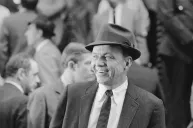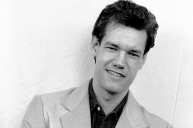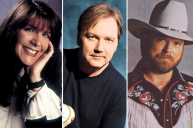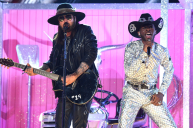Songs about a performer's right to call themself country get heavily criticized anytime a current star drops lyrical references to Alabama and Hank Williams or reminds us of their small-town upbringing. Yet like many things bemoaned about the current state of the genre, this trope predates the supposed "death" of "real country music." Indeed, what Dr. Michael Longan of Valparaiso University calls identity songs stretch back to the heydays of Little Jimmy Dickens, Loretta Lynn and others long respected by listeners with the strictest definitions of country as a musical genre and way of life.
Motivations to claim one's space within a broad concept have shifted over time. What began as celebrations of artists' stage personas and their listeners' day-to-day lives morphed into attempts to justify what gets labeled as country music and, more recently, disrupt the genre's lack of diversity.
The following playlist covers over 70 years of popular music history and represents what's changed (and what's stayed the same) about identity songs.
"Country Boy," Little Jimmy Dickens
Our timeline begins in 1949, when Little Jimmy Dickens took this statement of pride in rural living to the Top 10 of the country charts. Like many songs and skits from commercial country music's formative years, Dickens' hit and June Carter's cover of it ("Country Girl") laughed with —not at— a hard-working audience that lived its overarching theme.
"You're Lookin' at Country," Loretta Lynn
Beyond being the most obvious song to include on this list, Loretta Lynn's 1971 classic "You're Lookin' at Country" should inspire the most spirited discussions about a historic trend. For example, what about the pop-country landscape of the time made it worth spotlighting another musical statement of personal authenticity just one year and two singles after "Coal Miner's Daughter?" More pointedly, why did a successful woman feel the need to double down about her well-earned spot in the genre this deep into country music history?
"Thank God I'm a Country Boy," John Denver
Almost 50 years later, John Denver's 1975 crossover hit "Thank God I'm a Country Boy" registers as nothing more than a sincere celebration of rustic living and folk music that still connects with a broad audience.
Back then, some fans of traditional country viewed Denver as a pop intruder with no business winning industry awards, including the coveted 1975 CMA Entertainer of the Year prize. Even if this was never the song's motive, historic context makes it sound like self-justification of Denver's status as a Nashville star.
"I Was Country When Country Wasn't Cool," Barbara Mandrell Feat. George Jones
Though it's hard now to view anything that upped the mainstream profiles of Mickey Gilley and Johnny Lee as a negative, some of the same traditionalists opposed to Denver's country success in the '70s viewed the 1980 film Urban Cowboy as an existential threat.
One of the saltiest responses to the Urban Cowboy fad came via Barbara Mandrell's 1981 single "I Was Country When Country Wasn't Cool." It was an anthem for anyone feeling defensive because they already wore pearl-snap shirts and listened to old-school artists (special guest George Jones included) before posers started copying John Travolta.
"Gone Country," Alan Jackson
As the '90s country boom proved to be more than a passing phase, talents with differing backgrounds looked to Nashville as a land of opportunity. This Bob McDill-penned, Alan Jackson-sung No. 1 from 1994 celebrates country music as a big tent more so than it dismisses supposed outsiders for wanting a piece of what had become a very lucrative pie.
"Redneck Woman," Gretchen Wilson
Identity songs as chart-toppers roared back in 2004 when Gretchen Wilson told us all about her deep respect for the musical legacies of Tanya Tucker, Charlie Daniels and Hank Williams Jr. Beyond that, Wilson destroyed the false yet still prevalent concept that redneck equals hyper masculine.
"I Love My Country," Florida Georgia Line
Namedropping rural recreation activities and past stars became a "bro-country" staple as some of this century's most viciously critiqued artists kept a tradition alive. Florida Georgia Line exemplified this practice in 2020 by defending its contentious spot within the genre while lauding the sustained influence of George Strait and Lynyrd Skynyrd.
"Country Again," Thomas Rhett
Thomas Rhett embraced a stripped-down, folksy sound with 2021's "Country Again" that crosses the roots-bound approach of the Nitty Gritty Dirt Band and Diamond Rio with more modern elements. Though Rhett's best identity song gets lumped in with paint-by-numbers efforts by many of his contemporaries, his lyrical and sonic re-embrace of all things country feels way more heartfelt than typical rural rallying cries.
"Nobody's More Country," Blanco Brown
Like Darius Rucker's "Southern State of Mind" before it, Blanco Brown's "Nobody's More Country" (2021) comes across as claiming a piece of the genre's turf amid much-needed diversification. Like Mandrell before him, Brown was country before it was cool, as evidenced by coming-of-age memories of pickup trucks and Tim McGraw cassettes.
"Jesus Loving American Guy (Limp Wrist)," Paisley Fields
LGBTQ+ artist Paisley Fields refuses to concede country music and country living to his small-minded oppressors throughout this preview of his 2022 album Limp Wrist. It's a fitting end to a list that reminds us that a wide range of people can (and should) co-own a genre that's at its best when it captures a wider and more accurate snapshot of the American experience.




